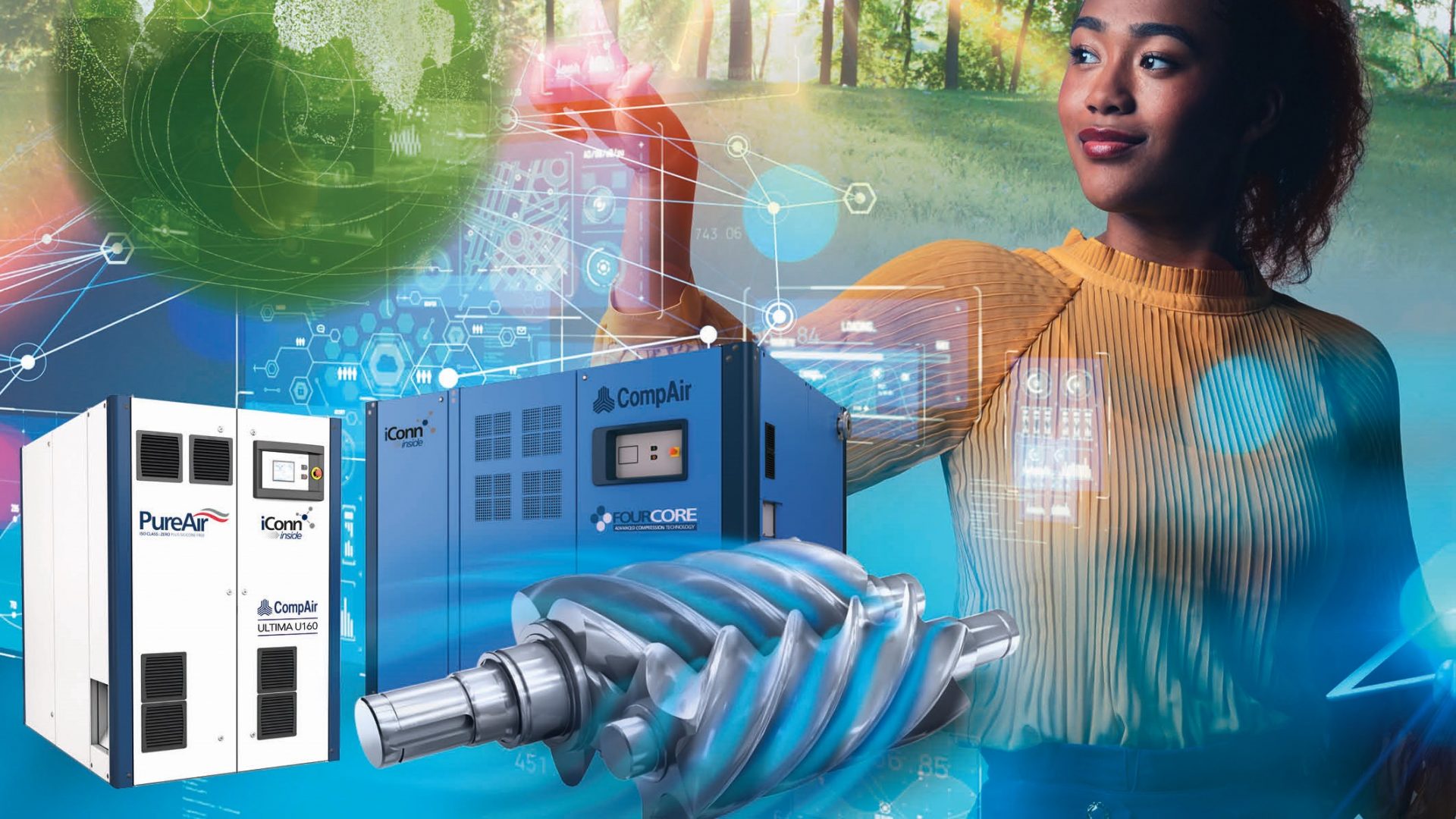With Europe experiencing soaring energy prices, and compressed air accountable for between 12 to as much as 40 per cent of all the industrial energy consumed [1], many businesses are considering what steps they can take to minimise costs and improve the efficiency of their operations. Now is an opportune moment for energy-intensive organisations to take advantage of heat recovery, oil-free technology and digital analytics, says one of the industrial compressed air leaders, CompAir.
In the first quarter of 2022, short-term gas prices on the largest European exchange were five times higher than their 2021 average [2], and future markets are pricing European gas at up to three times its 2021 levels for at least the next three years. However, CompAir is advising compressed air users that action can be taken now to help protect their investments for the future.
Here are some top tips that CompAir recommends, with advice on the company’s latest compressed air technologies, to help lower energy costs and optimise efficiency levels.
Opt for oil-free screw compressors
While most production-sensitive environments, such as those in the food and beverage or pharmaceutical sectors, will opt for an oil-free compressor, many other businesses would benefit from the efficiencies that an oil-free model can deliver. In many cases, whole life costs are reduced, with businesses able to save on the cost of oil replacement, and there’s no requirement for additional products such as oil separators.
Take advantage of the latest oil-lubricated screw compressor technology
However, for those seeking an upgrade to an oil-lubricated system plus air treatment, the latest oil-lubricated technologies have been developed to optimise sustainability throughout the compressor’s lifecycle. CompAir’s FourCore range combines best-in-class compressed air efficiency with a small footprint and sustainable design for eco-conscious businesses.
For example, when carbon emissions from a new 160 kW FourCore model are compared with a traditional compressor, running for 8,000 hours a year, the FourCore system reduces the equivalent greenhouse gas emissions of 32 passenger cars, or 371,800 miles driven by a passenger car, over the course of one year. This is the same amount of carbon sequestered by 181 acres of forest.
Furthermore, when compared with a conventional two-stage compressor, the new 200 kW model uses 22 per cent less materials and can help cut waste by up to 19 per cent.
And when compared with previous single-stage compressors in this size range from CompAir, the new models are up to 8 per cent more efficient, offering a best-in-class oil-lubricated solution for decision makers.
Heat recovery
Taking advantage of measures such as heat recovery represents a considerable opportunity to lower energy costs, by recycling excess heat and using it to a site’s advantage. With typically only 10 per cent of the electrical energy input being converted into compressed air, the remaining 90 per cent is generally wasted as heat. By fitting a heat recovery unit to a compressor, the system can ‘recapture’ energy lost during the compression process and use it for other useful purposes. For example, it can supplement the electricity, gas or oil needed to generate hot water for washrooms or process water. Alternatively, it can be transferred as direct warm air into a workspace or facility.
CompAir offers multiple turnkey heat-recovery solutions for its oil-free and oil-lubricated screw compressors, both factory fitted and retrofittable. This allows for easy ‘plug-and-play’ installation and an immediate realisation of energy and cost savings.
Don’t leak profit
It’s essential to manage pipework leaks. Air leaks are the leading cause of energy loss in industrial air systems, wasting as much as 20 to 30 per cent of the system’s output. There are many reasons for leaks in a compressed air system, including shut-off valves and manual condensate valves being left open, as well as leaking hoses, couplings, pipes, flanges and pipe joints.
With a leak as small as 3mm potentially costing over €800 in wasted energy [3], one solution is a simple leak detection survey, which can identify any problems quickly so remedial action can be taken. Alternatively, a flow meter is a reliable means of evaluating compressed air generation and downstream inefficiency costs. Indeed, finding and repairing one 3mm leak could potentially save enough money to cover the cost of purchasing one.
Undertake an energy audit
Whether it’s buying a new compressor or upgrading an existing system, a sensible starting point is to always undertake a full site energy audit. This will establish current compressed air usage and costs, help identify air leaks to determine where energy is being lost and where cost savings could be made, and test air quality to ensure the compressed air generated meets the right standards. Not only does an energy audit help lower a business’ total cost of ownership, it also helps reduce environmental impact too.
[1] British Compressed Air Society
[2] McKinsey, ‘Outsprinting the energy crisis’, https://www.mckinsey.com/business-functions/operations/our-insights/outsprinting-the-energy-crisis
[3] The Carbon Trust, ‘How companies can save money from thin air’, https://www.carbontrust.com/news-and-events/news/how-companies-can-save-money-from-thin-air



